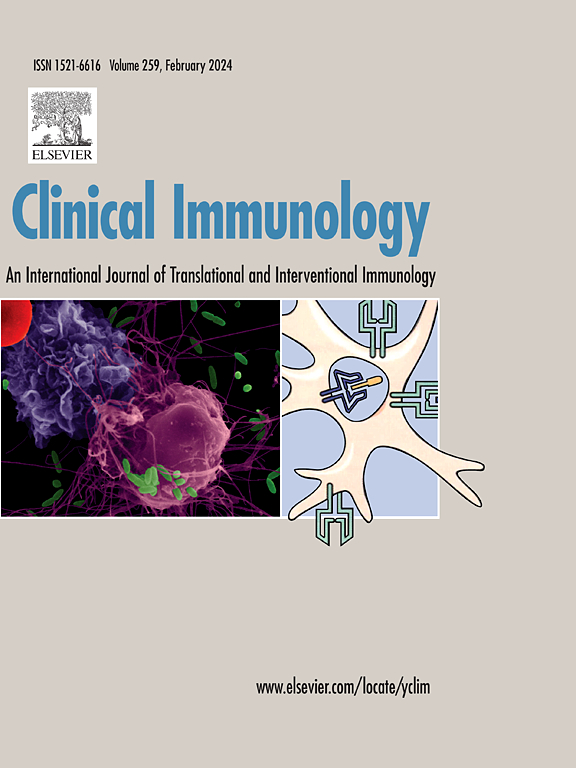Etiopathogenesis of Behçet's disease: A systematic literature review
IF 3.8
3区 医学
Q2 IMMUNOLOGY
引用次数: 0
Abstract
Behçet's disease (BD) is a chronic, multisystemic inflammatory vasculitis affecting veins and arteries. Its etiopathogenesis remains unclear but is thought to result from genetic predisposition combined with environmental triggers. Recent genome-wide association studies (GWAS) have linked various genetic polymorphisms (e.g., HLA*B51, ERAP1) to an increased risk of BD, with particular focus on cytokine-related gene variants. Infectious agents, such as Streptococcus species and herpes simplex virus, along with oral and intestinal dysbiosis and molecular mimicry, are key environmental triggers of innate immune inflammation, which is further amplified by adaptive immune responses. The innate immune system's primary cells, including neutrophils and NK cells, are upregulated, leading to an overproduction of proinflammatory cytokines. Additionally, an imbalance in T cell populations, characterized by a decrease in Tregs and expansion of Th1 and Th17 cells, contributes to disease pathogenesis. This review provides an overview of recent advances in understanding BD's etiopathogenesis.
behaperet病的发病机制:系统的文献综述。
behet病(BD)是一种影响静脉和动脉的慢性多系统炎症性血管炎。其发病机制尚不清楚,但被认为是遗传易感性与环境诱因相结合的结果。最近的全基因组关联研究(GWAS)已经将各种遗传多态性(如HLA*B51, ERAP1)与BD风险增加联系起来,特别关注细胞因子相关基因变异。感染因子,如链球菌和单纯疱疹病毒,以及口腔和肠道生态失调和分子模仿,是先天免疫炎症的关键环境触发因素,适应性免疫反应进一步放大了先天免疫炎症。先天免疫系统的原代细胞,包括中性粒细胞和NK细胞,被上调,导致促炎细胞因子的过度产生。此外,以Tregs减少和Th1和Th17细胞扩增为特征的T细胞群失衡有助于疾病的发病机制。本文综述了双相障碍发病机制的最新进展。
本文章由计算机程序翻译,如有差异,请以英文原文为准。
求助全文
约1分钟内获得全文
求助全文
来源期刊

Clinical immunology
医学-免疫学
CiteScore
12.30
自引率
1.20%
发文量
212
审稿时长
34 days
期刊介绍:
Clinical Immunology publishes original research delving into the molecular and cellular foundations of immunological diseases. Additionally, the journal includes reviews covering timely subjects in basic immunology, along with case reports and letters to the editor.
 求助内容:
求助内容: 应助结果提醒方式:
应助结果提醒方式:


